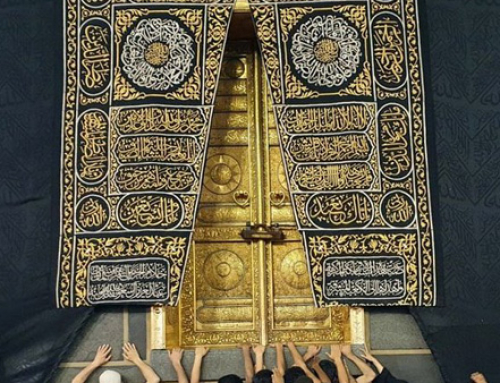Ibn Ataa Allah as-Sakandari
June 4, 2013
How strange is he who tries to avoid the inescapable, and seeks what will not last with him. “…Indeed it is not the eyes that turn blind, but it is the hearts that turn blind within the breasts. [22:46]”)
How completely strange is the slave who tries to evade his Lord, Who is Inescapable, by not performing what brings him nearer to Him despite all His perennial generous gifts and bestowals, and seeks what does not last, which is the worldly life and everything other than God, by embracing his desires and following his Shaitan and passion.
Among the nicest verses for this kind of people:
Pleasures will vanish, O you who fulfilled his lustsBy disobedience, then you are left with guilt and shameYou are left with dire consequences which cannot be undoneFor there is no good in a pleasure induces to hellfire.
And this is blindness of the insight: for he exchanged the better for lowlier, and preferred the perishable over The Everlasting.
The verse: “…Indeed it is not the eyes that turn blind, but it is the hearts that turn blind within the breasts. [22:46]” likens visual blindness to blindness of the insight, for visual blindness obstructs external perceptions, while blindness of the insight, which is the eye for the heart, blocks spiritual meaningful signals in the heart and Divine knowledge.
Don’t travel from one state to another state, else you will be like the mill donkey, who keeps on walking, and the place he ends up in is the one he leaves. But leave from all states towards the Creator of States. “And that the ultimate end is toward your Lord, [53:42]”. And contemplate his saying -God bless him and grant him peace- ‘whose Hijra [emigration] is towards God and His Messenger, then his Hijra is towards God and His Messenger, and whose Hijra is towards a worldly affair or a woman to marry, then his Hijra is for whatever he traveled to.’ So understand his words -God bless him and grant him peace-, and ponder over this matter if you understand.)
Don’t ask a reward for your good deeds, even in the Hereafter, for indeed, the Hereafter is a universe as the world, and the universes are similar in being othernesses [Aghyār], even if there are Anwār [lights] in some. Only seek the Face of the Most Generous the Bountiful the Beneficent, Who created the universes, and fulfill the requirements of slave-hood and servitude, and perform the dues of Divinity, to attain the maqām [station] of: “and that the ultimate end is toward your Lord, [53:42]”
This is the maqām of al-‘Ārifīn [Experts or Knowers of God] who renounce asking for reward, and entirely regard the Most Generous the Bestower, whereby they reach the maqām of sincerity emanating from exclusive Tawḥīd [affirmation of the Divine Oneness].
On the other hand, who purifies his worship of hypocrisy and insincerity yet asks for reward, is as if escaped from a universe to a universe. He is like the mill donkey, incessantly walking but never going to a place other than where he started.
This likening strongly urges against asking for reward for obedience, and regard his saying -God bless him and grant him peace- in the Ḥadīth: ‘Actions are but according to intention, and each person will have what he intended; whose Hijra [emigration] is towards God and His Messenger,’ in intention and goal, ‘then his Hijra is towards God and His Messenger’ in final arrival.





![How Long Will You Evade Your Lord? The Greatest Karāma [miraculous gift] is Righteousness](https://en.yassine.net/wp-content/uploads/2012/11/Ramadan-Kareem-500x383.jpg)

